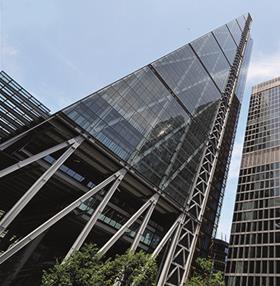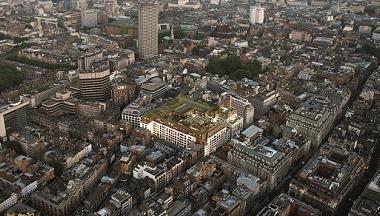The Brexit referendum decision was arguably the most significant political event to have occurred in this country in decades.

Yet the widely predicted immediate economic crisis has not occurred and, in fact, the UK economy is estimated to have grown by 1.8% in 2016, the second-highest growth rate among the leading G7 countries.
Although in the immediate aftermath of the referendum transactional activity slowed, the investment market proved to be more resilient than many thought likely.
The first quarter of 2017 has seen further sustained activity, with a record level of £5bn poured into the London office market - Chinese investor CC Land’s purchase of the Cheesegrater being the most notable.
Savills has attributed a staggering 84% of Q1 London office transactions to non-domestic investors. Chinese and Hong Kong investors have been especially visible, investing more than any other foreign investors during this period, many of them making their first forays into the UK market.

European investors have been busy too, with Deka Immobilien buying Great Portland Estate’s Rathbone Square and Enpam Real Estate buying a 50% stake in Amazon’s new London HQ.
So what are the factors that are apparently causing overseas investors to put aside Brexit fears in the race to deploy capital in the UK?
Without doubt, the UK continues to be regarded as a safe haven for foreign capital with its transparency and robust legal framework continuing to be attractive - this has been particularly the case for core long-income central London assets, as well as some prime regional locations.
The fall in the value of sterling has also made the UK even more appealing for opportunistic overseas investors.
Hitting the pause button
However, there is no doubt that the snap general election decision has caused many investors to hit the pause button and we have certainly seen evidence of sellers deciding to delay bringing assets to the market until after 8 June. Some deals that are in train at the moment have also become more sticky.
This general election is arguably the most important one in recent history
Although the election result will not bring immediate clarity on the precise terms of a Brexit deal, it will potentially give the next government a clear mandate to negotiate in an orderly fashion the best exit terms for the UK. On the flipside, if sterling recovers, the UK may seem less attractive to foreign investors.
We are also starting to see an increasing number of UK-based tenants, particularly in the financial services sector, looking at other European locations as a hedge against the Brexit negotiations.
These may not necessarily be legal commitments at this stage, but the threat is there. For these reasons, I believe this general election is arguably the most important one in recent history.






























1 Readers' comment